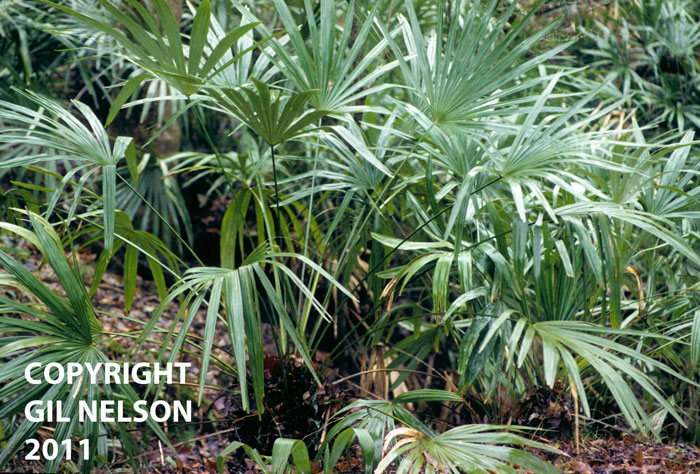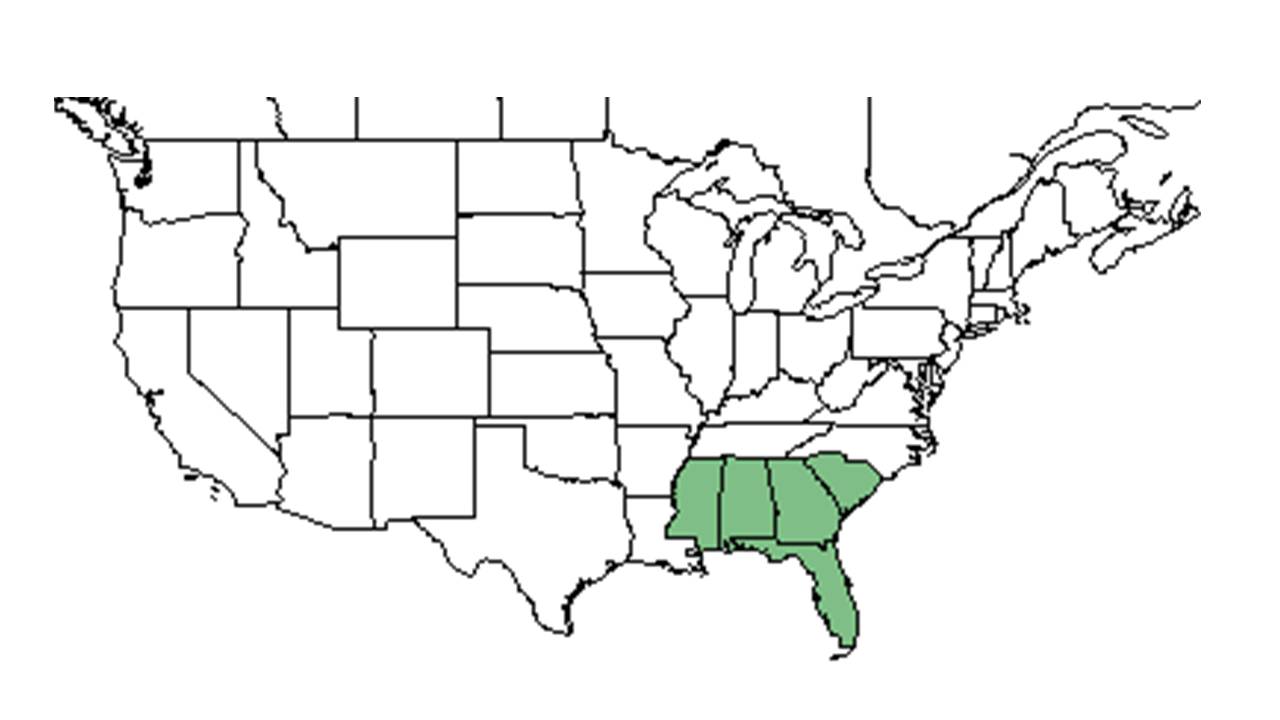Difference between revisions of "Rhapidophyllum hystrix"
(→Description) |
|||
| Line 21: | Line 21: | ||
==Description== | ==Description== | ||
<!-- Basic life history facts such as annual/perrenial, monoecious/dioecious, root morphology, seed type, etc. --> | <!-- Basic life history facts such as annual/perrenial, monoecious/dioecious, root morphology, seed type, etc. --> | ||
| + | A description of ''Rhapidophyllum hystrix'' is provided in [http://efloras.org/florataxon.aspx?flora_id=1&taxon_id=220011536 The Flora of North America]. | ||
| + | |||
''Rhapidophyllum hystrix'' is a perennial shrub with needles at the base of its leaves (FSU Herbarium). | ''Rhapidophyllum hystrix'' is a perennial shrub with needles at the base of its leaves (FSU Herbarium). | ||
Revision as of 13:50, 17 August 2015
| Rhapidophyllum hystrix | |
|---|---|

| |
| Photo taken by Gil Nelson | |
| Scientific classification | |
| Kingdom: | Plantae |
| Division: | Magnoliophyta – Flowering plants |
| Class: | Liliopsida – Monocotyledons |
| Order: | Arecales |
| Family: | Arecaceae ⁄ Palmae |
| Genus: | Rhapidophyllum |
| Species: | R. hystrix |
| Binomial name | |
| Rhapidophyllum hystrix (Pursh) H. Wendl. & Drude ex Drude | |

| |
| Natural range of Rhapidophyllum hystrix from USDA NRCS Plants Database. | |
Common name: needle palm
Contents
Description
A description of Rhapidophyllum hystrix is provided in The Flora of North America.
Rhapidophyllum hystrix is a perennial shrub with needles at the base of its leaves (FSU Herbarium).
Distribution
Ecology
Habitat
R. hystrix occurs most frequently in shaded wet sandy or loamy soil (FSU Herbarium). It can be found in floodplains, as well as on the slopes of steephead ravines and on limestone outcrops (FSU Herbarium). It appears in several native community types, including mixed hardwood woodlands, Magnolia-Tilia-Hydrangea bluffs, and cabbage palm-hardwood hammocks (FSU Herbarium). It can also occasionally be found in disturbed areas like roadsides (FSU Herbarium).
Phenology
Flowering has been observed in February and May, while fruiting has been observed in February and August (FSU Herbarium).
Seed dispersal
Seed bank and germination
Fire ecology
Pollination
Use by animals
Diseases and parasites
Conservation and Management
Cultivation and restoration
Photo Gallery
References and notes
Florida State University Robert K. Godfrey Herbarium database. URL: http://herbarium.bio.fsu.edu. Last accessed: June 2014. Collectors: Loran C. Anderson, Robert K. Godfrey, Lisa Keppner, Angus Gholson, James R. Burkhalter, R. Kral, Gary R. Knight, Mark Garland, Sidney McDaniel, Richard D. Houk, L.B. Thein, S.D. Latimer, Patricia Elliot, George R. Cooley, Carroll E. Wood, Jr., Kenneth A. Wilson, Leonard J. Brass, R.S. Mitchell, and A.F. Clewell. States and Counties: Florida: Citrus, Clay, Escambia, Gadsden, Jackson, Jefferson, Lake, Leon, Liberty, Okaloosa, Santa Rosa, Taylor, Wakulla, and Washington. Georgia: Clay and Grady. Alabama: Baldwin.